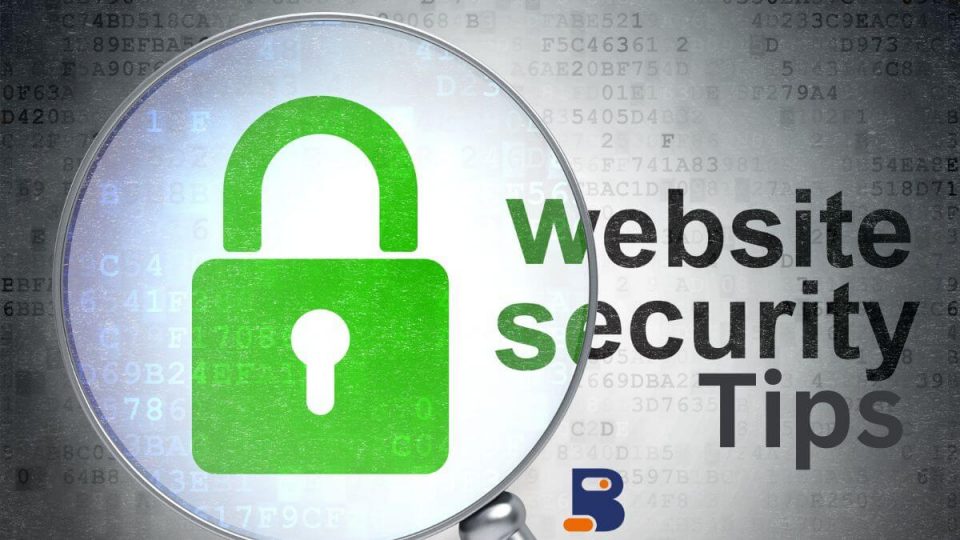In the evolving landscape of the digital world, the security of your business website is principal. With cyber threats and hacking attempts becoming more cultured, it is important to take positive steps to protect your online presence.
This article offers a comprehensive guide and website security tips to protecting your website from hackers in 2023.
Website Security Tips
1. Stay Updated with Software and Plugins
Keeping your website’s software and plugins up to date is a cornerstone of effective security. Hackers often exploit vulnerabilities in outdated software. Regularly update your content management system (CMS), plugins, themes, and any other components. These updates naturally include security patches that address known susceptibilities, reducing the risk of a successful attack.
Staying informed about security releases is crucial. Subscribe to security newsletters and forums to receive updates on potential threats and patches. Utilize automatic updates when available to ensure you’re running the latest versions without manual intervention.
2. Implement Strong Authentication Practices
Improve your website’s security by implementing strong authentication practices. Two-factor authentication (2FA) is an outstanding option that needs users to provide two forms of verification before gaining access. This adds an extra layer of protection beyond the traditional username and password combination. Consider using biometric factors like fingerprints or facial recognition, or use time-based one-time passwords (TOTPs) generated by authenticator apps.
Additionally, enforce password complexity rules for user accounts. Require a mix of uppercase and lowercase letters, numbers, and special characters. Encourage users to choose unique passwords that are not easily guessable.
Read Also: Mobile Optimization: Why It is Important for SEO Rankings
3. Regular Security Audits and Vulnerability Scanning
Performing regular security audits and vulnerability scans is vital for identifying potential weaknesses in your website’s code and infrastructure. Utilize reputable security tools to scan for vulnerabilities that hackers might exploit. Regular audits allow you to address issues promptly, reducing the likelihood of a successful breach.
Conduct both manual and automated security audits. Manual audits involve code reviews and identifying potential security flaws. Automated tools can help identify common vulnerabilities such as SQL injection, cross-site scripting (XSS), and insecure configuration settings.
4. Secure Data Transmission with SSL Certificates
Encrypting data transmission between your website and users is crucial for protecting sensitive information. Install an SSL (Secure Sockets Layer) certificate to establish a secure connection. This not only ensures data confidentiality but also boosts your website’s credibility, as visitors can see the padlock symbol in their browser’s address bar.
Choose an SSL certificate that matches your website’s needs. Extended Validation (EV) certificates provide the highest level of assurance, displaying your organization’s name in the address bar and enhancing user trust.
5. Limit Access and Privileges
Minimize the risk of unauthorized access by carefully managing user access and privileges. Adhere to the principle of least privilege (POLP), granting users only the permissions necessary for their tasks. This approach limits the potential impact of a security breach, as hackers won’t have broad access to sensitive areas.
Implement role-based access control (RBAC) to assign permissions based on job roles. Regularly review user permissions to ensure they align with current responsibilities. Remove access for users who no longer require it.

6. Regular Backup and Recovery Planning
Backing up your website’s data and files regularly is a critical aspect of website security. In the event of a successful breach or data loss, recent backups enable you to restore your website to a secure state quickly. Develop a comprehensive recovery plan to minimize downtime and potential data loss.
Choose a reliable backup solution that offers automatic and incremental backups. Store backups in off-site locations or cloud storage services to prevent data loss in case of physical damage or server failure.
7. Use Web Application Firewalls (WAFs)
Deploying a web application firewall (WAF) adds an additional layer of protection to your website. A WAF filters incoming traffic, identifying and blocking malicious requests. It can thwart various attacks, including SQL injections and cross-site scripting (XSS). Choose a WAF that aligns with your website’s needs and keep it updated regularly.
Opt for a cloud-based WAF for real-time protection. It can mitigate DDoS attacks, automatically update security rules, and provide a buffer between your website and potential threats.
8. Educate Your Team on Security Best Practices
Your website’s security is a collaborative effort. Educate your team on security best practices to ensure everyone contributes to maintaining a secure environment. Offer training on identifying phishing attempts, using strong and unique passwords, and recognizing suspicious activity. Fostering a culture of security awareness is essential.
Conduct regular security training sessions for all team members. Include real-world examples of security breaches and their consequences to underscore the importance of security practices.
9. Monitor for Suspicious Activity
Implement real-time monitoring to detect unusual or suspicious activity on your website. Set up alerts for specific triggers, such as multiple failed login attempts or unauthorized access to sensitive areas. Early detection enables you to take swift action, preventing potential attacks from escalating.
Use intrusion detection systems (IDS) and intrusion prevention systems (IPS) to monitor network traffic and identify anomalies. Implement security information and event management (SIEM) solutions to centralize log analysis and monitoring.
10. Engage Security Experts
Consider enlisting the expertise of cybersecurity professionals to assess and enhance your website’s security. These experts can conduct thorough assessments, identify vulnerabilities, and provide tailored recommendations to bolster your website’s defenses. Their insights can help you stay ahead of emerging threats.
Collaborate with penetration testers and ethical hackers to perform controlled security assessments. They can simulate real-world attacks and provide valuable insights into your website’s security posture.
Conclusion
As the digital landscape evolves, protecting your website from hackers remains a critical endeavor. By staying vigilant and implementing these ten comprehensive tips, you can significantly reduce the risk of security breaches and unauthorized access. Remember, proactive measures and continuous awareness are key to maintaining a secure online presence.
